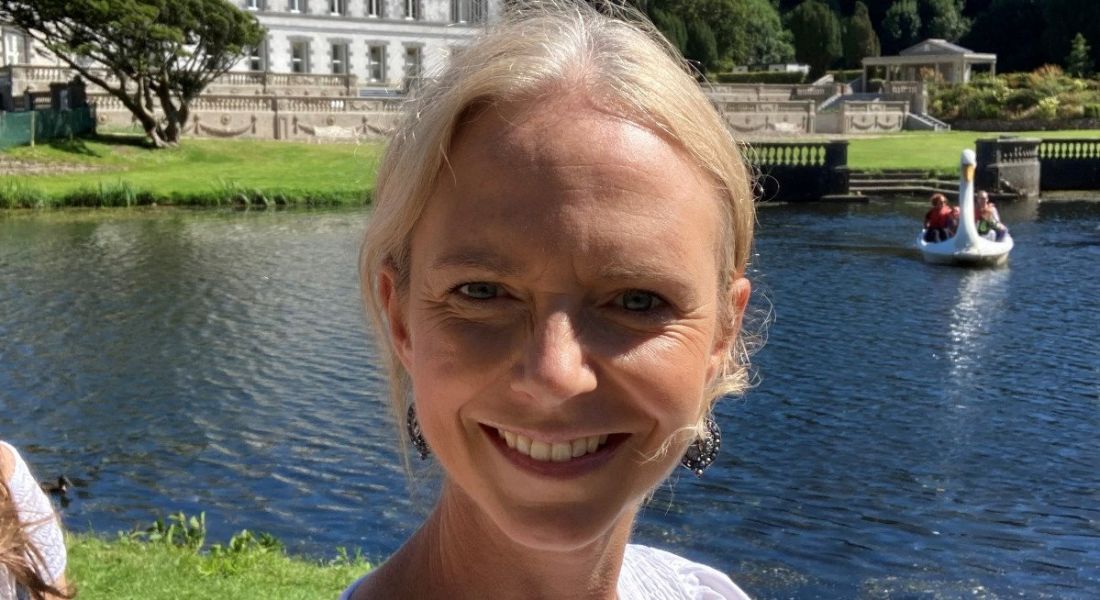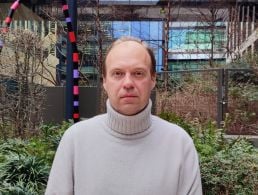As part of Engineers Week on SiliconRepublic.com, we spoke to KPMG’s Breda O’Callaghan about daily life in the sector.
Breda O’Callaghan is a director working in technology consulting at KPMG. After graduating from University College Cork with a degree in business information systems, she began a successful career working in consulting.
Prior to her current role at KPMG, O’Callaghan worked in the Middle East for five years, helping the UAE establish their telecommunications network. So what draws her to consulting? O’Callaghan says she loves the profession both because of the diversity present within the role and the opportunities, as well as ever-changing challenges.
‘Technology is a major enabler for organisations, but the real value is only realised when people are engaged and committed to the change’
– BREDA O’CALLAGHAN
If there is such a thing, can you describe a typical day in the job?
Every day brings something new, which is what is great about consulting. Usually I am in the office two days a week, but this very much varies depending on my client engagements, my team and what is happening in any specific week. As I work across a number of client engagements while also managing a number of internal initiatives, much of my day is spent interacting with different colleagues across the KPMG practice and with my clients. This can be either through in-person meetings, co-locating while I am in the office or Teams chats or calls and email.
At the start of every week, I like to outline the objectives for the week, or where possible, the month ahead. This allows me to prioritise and focus on what really needs to get done and the work I can begin to mobilise and build on over time. In my role as director, I need to look not only at the projects that are ongoing, but also at future opportunities and having a clear vision for me in this space is really important. However, each week and day often brings change, so I always need to be flexible to adjust as needed!
What types of engineering projects do you work on?
I have been working on large-scale business transformation programmes for the last few years and these projects have varied in nature ranging from helping clients to develop their IT strategy, advising on client migration journeys, planning, leading and managing the design and delivery of technology solutions to support critical business functions and operations. I also work with clients to design and implement operating models which best fit their requirements and their operating landscape.
What really interests me is the wide variety of projects that I am involved with and how each day brings something new with respect to learnings. The teams I work with are motivated to help our clients deliver the best solution to meet their needs and it’s really rewarding to see how the support and advice that I can give to the people I work with really helps make a difference in the work that they do.
It’s also really clear to me that technology is a major enabler for organisations, but the real value is only realised when people are engaged and committed to the change. Bringing the two together is so important and I love being involved in ensuring that technology and business change are tightly interlinked.
What engineering skills do you use on a daily basis?
Communication, team-building, delegation are all skills that I use on a daily basis. As the nature of my work means that the teams I work with change on a regular basis, bringing everyone onboard at the start of a project, understanding and appreciating the different ways that people work and building a cohesive team is really important and takes time – but it is definitely worth the investment!
Delegating and the empowerment of the people on my teams is something that I have spent a lot of time focusing on, to allow the team the opportunity to grow and develop, while also ensuring that I don’t become a bottleneck. What has worked for me is that by giving people ownership for delivery areas, it gives them authority and responsibility to shape the outcome, and people appreciate and respond to this.
What are the hardest parts of engineering, and how do you navigate them?
Balancing it all can be difficult at times – work is often busy and with family commitments outside work, making the time to create some ‘space’ for myself can be a challenge. However, I love travelling and I always ensure that in that ‘off time’, I am fully off. This helps me to relax, fully enjoy my time off and come back recharged.
Carving out time to focus on what needs to be done is also important – when your days are filled with meetings, setting aside some focus time can be hard. However, I think this is really beneficial, so I now try to set aside some time, even if its just 30 minutes on a Friday evening to reflect on the bigger picture and what else needs to be considered.
What skills and tools are you using to communicate daily with your colleagues?
Teams, calls, days in the office to work with the team, coffees – either virtual or in person. We have a coffee roulette ongoing which was started during the pandemic but was something that people really enjoyed, so we continued it. It runs every two weeks and at each roulette you have coffee with a group you haven’t met before or maybe wouldn’t normally see because of different projects.
We also have many social events – we do regular technology meet-ups with some social aspect afterwards and it’s a great opportunity to meet the wider team and get to know people in a social context.
How has this role changed as the engineering sector has grown and evolved?
My role is always changing as I need to evolve and keep pace with technology trends and the challenges that my clients are facing. Regulatory changes, security risks and the ever-expanding technology frontier means that clients are faced with a myriad of options and part of my role is helping them to navigate this changing landscape and understand what best suits their challenges, but also what provides them with opportunity.
What do you enjoy most about working as an engineer?
The variety of work, the people and the challenge – every day is a different day. The mix of projects and clients I get to work with across many different sectors is fantastic and I am always learning.
What advice would you give to someone who wants to work in engineering?
Go for it, it’s a great space to be in. Not only do you get to work with modern and existing technology solutions, but you can see how the projects and work that you do deliver real value.
Engineering and technology is changing all the time, and people from many different backgrounds and experiences are joining engineering, so there is a great mix of people in this space and there is a place for everyone who is excited about helping organisations exploit the value that technology can bring.
Engineering needs people who are problem-solvers, who like a challenge and who are willing to ask questions and creatively consider the best solutions for challenges faced. If you think this is you, engineering is definitely a good choice for you to consider.
10 things you need to know direct to your inbox every weekday. Sign up for the Daily Brief, Silicon Republic’s digest of essential sci-tech news.




